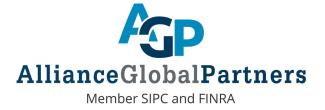
CARES Act For Individuals
The US Senate and House have passed the largest Economic Relief package in history called the Coronavirus Aid, Relief, and Economic Security Act (CARES).
The package includes wide range of provisions for forgivable loans, rebate payments and/or tax credits aimed at helping individuals, businesses, healthcare entities and state and local governments. This relief package was meant to help with short term cash flow needs created by the Coronavirus. In this article I will deal specifically with the key components of relief for Individuals.
For Individuals
Recovery Rebate (Direct payments to taxpayers)
Section 2201: Taxpayers who file their tax return as an Individual and had up to $75k in Adjusted Gross Income (AGI) in 2019 (or 2018 if you have not filed your 2019 tax return) will receive a onetime payment of $1,200. If you file Married Filing Jointly (MFJ) and have an AGI of up to $150k will receive a onetime payment of $2,400. Additionally, taxpayers will receive an additional $500 per child claimed on their tax return who are 16 years of age or younger.
You are not eligible for this payment if someone claims you as a dependent on their tax return.
If a person or family has income above the thresholds mentioned above, then the payments will be reduced by $50 for every $1,000 increase in AGI. For ex. If an MFJ couple has $175,000 in AGI then their payment will be reduced by $500.
The phaseout ends at $99,000 in AGI for an Individual, $198,000 for MFJ and $112,500 Head of Household. Therefore, you are not entitled to any of the payments if your income is above those amounts.
If you used direct deposit for your refund on your last filed return, then you will receive the money in that same account. Otherwise they will mail the check to the address used on your most recent tax return.
If you are currently receiving Social Security, you are still eligible for these payments. These payments should be sent to the same account your social security is sent to.
You will not be required to pay income tax on these payments
Retirement Plans
IRA Retirement Plan contribution deadlines have been increased to the July 15, 2020.
Allowed to take a Coronavirus-Related Distribution of up to $100,000 from IRA’s, employer sponsored retirement plans or a combination of both in 2020 if:
- You, your spouse or a dependent have been diagnosed with the Coronavirus
- Experienced adverse financial consequences due to quarantine, furlough, laid off or having work hours reduced
- Unable to work because of lack of childcare as a result of the disease
- Owned a business that has closed or operated under reduced hours
- Meet some other reason the IRS decides is ok
The distributions:
- will be exempt from the 10% penalty
- Can be repaid over 3 years -You can “roll” (write a check) for all or any portion of the disbursement back into the retirement account over the following three-year period. It can be done in multiple payments or a single payment. Remember if you ‘roll’ the money back in at any point during the 3 years make sure to amend the return if you paid taxes on the distribution in 2020.
- You can split the income, therefore the taxes that need to be paid, evenly over a three-year period.
Enhancements in loans for Employer-Sponsored Plans
- Maximum Loan is increased to $100,000
- 100% of the Vested Balance may be used for the loan (instead of the previous 50%)
- Delayed Payments – payments on the balance from date of enactment through end of 2020 can be delayed for up to one year
Required Minimum Distributions (RMD’s)
Section 2203: RMD’s for Retirement plan owners and beneficiaries of ‘Stretch’ IRA’s are suspended during 2020. You can ‘pay back’ those distributions that have occurred already this year. It can be done as follows:
- if it has occurred within 60 days you can simply ‘roll’ back (write a check) into the plan.
- If it can be show that the individual has been impacted by the Coronavirus, then you have 3 years from the date the distribution has been received.
- If you are a beneficiary and took your RMD already then you are out of luck. There is no way of ‘rolling’ it back.
Relief for Student Loan borrowers
Section 3513: Payment Deferrals until September 30 2020. During this time payments are not required to be made and no interest will accrue on the loan. If you make automatic payments, you will need to suspend them yourself otherwise, they will continue to occur. They are not stopped automatically.
Health Savings Accounts
Section 3702: Beginning 2020 the definition of qualified medical expenses will include ‘over the counter medications’ as well as menstrual products. Please contact your Insurance company to confirm this also applies to your plan.
The due date for contributing to your Health Savings Account has also increased to July 15, 2020
Unemployment Benefits:
Includes Self employed and Part time workers
Individuals who cannot work because they are caring for a child who is not attending school due to the Coronavirus shut down
Caring for someone who has Coronavirus
Includes gig workers, free lancers and independent contractors
People who must self-quarantine
Those unable to get to work because of a quarantine imposed
If you are unemployed, partly employed or unable to work because your employer closed down
Pandemic Unemployment Insurance: This is specifically geared to self-employed individuals, who would not normally be eligible for unemployment insurance, will now be eligible for up to 39 weeks of benefits due to this provision.
First week of Unemployment can be covered.
Unemployment benefits increase $600 per week for up to 4 months and will drop off at the end of July
Unemployment Benefits extended by 13 weeks
Charitable Contributions:
Donors can deduct 100 percent of their gift against their 2020 income if they are donating cash and it’s a public charity. The rules for 2020 do not pertain to Donor Advise Funds.
Taxes:
Federal Income Tax returns are due July 15, 2020
These materials are provided for general information and educational purposes based upon publicly available information from sources believed to be reliable—we cannot assure the accuracy or completeness of these materials. The information in these materials may change at any time and without notice. None of the information contained within constitutes a recommendation that any particular security, portfolio of securities, transaction, or investment strategy is suitable for any specific person. You understand that the information is not advising, and will not advise you personally concerning the nature, potential, value or suitability of any particular security, portfolio of securities, transaction, investment strategy or other matter.

